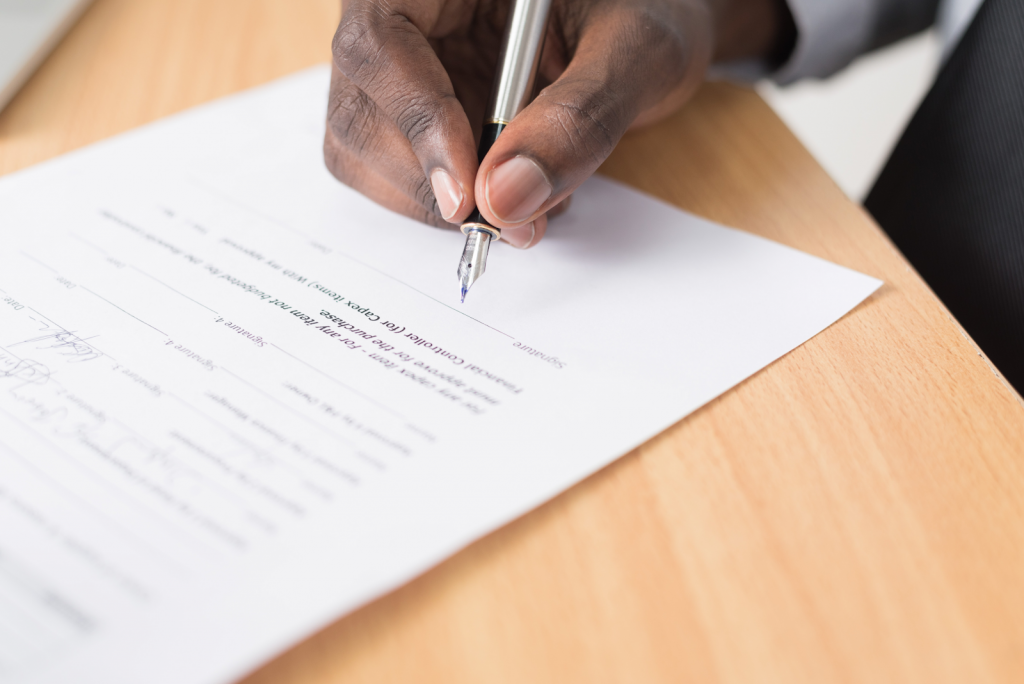When taking someone to court over a dispute, serving court papers and legal documents is a critical step. This affair is known as due process, and it maintains a vital balance of power between an individual and the state.
In many cases, it’s simple to serve the respondent. However, if your relationship with the other party has deteriorated or they do not want to go to court, they may engage in evasive tactics to avoid it. If legal papers aren’t served correctly, your case can experience delays or be dismissed entirely.
This article will explore how to serve papers to someone you can’t find and look at the steps involved in successfully serving the defendant. We’ll also discuss how professional process servers can help you when you’re in a tight spot.
A few groups of people can serve documents to a defendant. Professional process servers are the most proficient and competent, as they have extensive training in the local process service laws and procedures. They also have lengths of experience in the field and can move around roadblocks with ease.
A few groups of people can serve documents to a defendant. Professional process servers are the most proficient and competent, as they have extensive training in the local process service laws and procedures. They also have lengths of experience in the field and can move around roadblocks with ease.

Law enforcement officers including sheriffs, marshalls, and constables, can also serve process, though not all officers can serve civil subpoenas. Lastly, a third-party adult over 18 years who is not involved in the case can legally deliver documents. However, it will require a fair amount of research and due diligence if it’s their first time. Any party involved in the case, including the one initiating the lawsuit and the defendant, is not allowed to serve process.
Ways To Serve Someone You Can't Find
Process service entails delivering a copy of the complaint made against someone, a subpoena, and a date to appear in court. It must be delivered in advance of the court date to offer the defendant time to respond to the complaint if they wish, and a fair chance to obtain legal counsel in preparation for the hearing.
To ensure that court processes are standardized and consistent for all parties taken to court, there is a specific set of procedures to follow that get strictly enforced by the courts. When a person refuses to be served or engages in evasive behavior to avoid being found, it adds complications to the case at hand. If an individual is not served according to stringent regulations and procedures, you cannot move through with your court date.
You must employ process service in civil litigation procedures when you start a new case and throughout the case. So with that in mind, let’s talk about how to serve papers to someone you can’t find.
Personal Service
Personal service from a process server is the optimal and most common way to get papers served. Process servers like D&R Legal have experienced professionals that are knowledgeable about the procedures involved in due process, the documentation required, and tracking down parties that are hard to reach.
Personal service involves finding the defendant usually at their home or work address and discretely handing the necessary court papers to them personally. They then fill out a personal service form confirming when and how the defendant was served and deliver it to the courts.
Judges know they can trust personal service carried out by a professional, and it is often the quickest and most reliable way to serve process to a defendant. If you need your documents delivered quickly and without hassle, call the process servers at D&R Legal today.
By Certified Mail
There are cases when personal service cannot be achieved. You can serve legal papers to somebody in a small claims case by certified mail if you know their registered mailing address. This is done by posting a copy of the complaint and summons to the defendant, and ten days after sending the documents, the individual is considered to be served.
Be sure to have a return receipt requested, including the date and time of delivery with the recipient’s signature. These documents are used as proof of service in court. The small claims court clerk will send the legal documents and receive the certified mail receipt for a small fee in some areas.
What If I Don't Know Their Mailing Address?
If you don’t know the defendant’s mailing address but have their last known address handy, you can undertake investigations to determine their current address. By sending a letter to their last known address with “Return Service Requested. Do Not Forward”, the United States Postal Service will send the letter back to you with the defendant’s forwarding address, provided they have it on file. You can then serve the documents by certified mail to the new address.
Substituted Service

Substituted service works when all attempts and methods for personal service have failed. The process server locates the defendant’s home or work address and can serve papers to someone over 18 years and of sound mind, who can then transmit the documents to the defendant.
In the workplace, it can be a manager or business owner who receives and signs for the service. Alternatively, at home, the recipient could be anybody over 18 years who resides in the same abode. Proof of substituted service is then sent to the courts.
Electronic Service
When all physical methods of serving papers to someone have been exhausted, electronic service is an option. This technique will be more complex than most alternative solutions and is usually only attainable by a local rule or court order.
Electronic service entails delivering court papers to a party via electronic transmission or electronic notification, such as email or e-filing. It is the last resort because there are so many risks involved. For example, the document may get filtered through spam and malware systems, a common issue in civil litigation. Moreover, the file size of the papers is often too large to transmit and open via email.
Publication
The publication is similar to posting papers at the courthouse, though instead, the documents get printed in a local newspaper. Most courts require that you have fatigued all other methods before service by publication, as it is understandably invasive and can cause public embarrassment to the defendant.
Usually, it is best to serve the defendant discretely and in-person to maintain respect for their privacy and demonstrate goodwill as you progress through the case.

If you have any questions about this process or need help finding the right professional process servers for your needs, don’t hesitate to reach out so we can ensure a fast, reliable and easy process service for you.
Steps to Serve Someone You Can't Find
Many process servers’ routine service is initially attempted within seven business days after obtaining papers. But you can find process servers that will deliver service much faster and at an affordable rate.
Whether your professionals can effectuate service on the first attempt will depend on how easy much information you can provide about the subject, the documents that are being served and how difficult it is to find the defendant. Delivering documents to avoidant parties can require additional undertakings, which is why engaging with a company that offers several attempts at a flat rate can make all the difference.
That way you know what your financial commitments are before they engage in the work, rather than receiving a nasty surprise from a hefty bill and additional costs at the end.

Now that you have gathered all the information you can find about a person it is time to perform a search to dig deeper and discover where and how you can serve them. There are many ways to perform a search, including traditional and non-traditional methods. Here are a few ideas:
Social Media
There is a lot of valuable information floating around on social media that can help you track someone down. By conducting a name and location search on the defendants’ social accounts, you can find out where they usually hang out and may be able to contact some of their friends or family to find out where they are.
Professional social networking websites may help you uncover the respondent’s place of employment, opening up more avenues to serve legal papers to them at work or via substituted service.
Ask Friends and Family
If you know the respondents’ friends and family, they may be willing to help you track the person down. Understandably, those close to the defendant may be reserved about assisting if they know what is going on, so it is advisable to be polite and respectful. Sometimes, the information you can uncover through conversations can be as valuable as being led directly to the defendant.
Speak With Their Employer
Employers are more likely to be unbiased when it comes to helping you. Although many companies have policies to protect the personal details of their employees, you will likely be able to confirm whether the person still works there, or if they have moved on, where they are employed now.
Hire a Process Server
If you’re having trouble finding out information about the defendant in your case, you can always hire a professional process server to assist. Process servers are experts in their field and have invaluable years of experience moving through the service of process accurately and effectively.
Additionally, a process server with boots on the ground experience often has a track record of hunting down evasive defendants and serving them quickly. Opting for professionals can save you hours tracing avoidant individuals, and researching the correct procedures and necessary court documents.
Get Proof of Service

Once you have got sufficient information to find the defendant personally, it’s time to use one of the above methods to serve court papers to them. The last stage in the service process is to obtain proof of service and deliver it to the court clerk.
The courts use the proof of service document to verify that an individual in the case has been served properly, and the required procedures in process service were respected. Also known as an affidavit of service, the document needs to contain the following information:
- The name of the person served
- The time and place where service took place
- How the person was served
- Which documents were delivered to the defendant
- The defendant's name and signature to confirm that they have received service
Final Thoughts
Understanding how to serve papers to someone you can’t find is the first stage in getting your court documents delivered and advancing towards your court date. Without the correct procedures implemented in due process, you can experience unnecessary hindrances to your hearing.
Hiring a professional process server is the fastest and simplest way to ensure that you will not face any hiccups along the way – even when a defendant is hard to track down. The experts at D&R Legal are here to offer their complete support along your journey, and to serve papers quickly and accurately. Give the process server team at D&R Legal a call today to get started.
You might also enjoy these related recommendations: San Francisco Process Server







